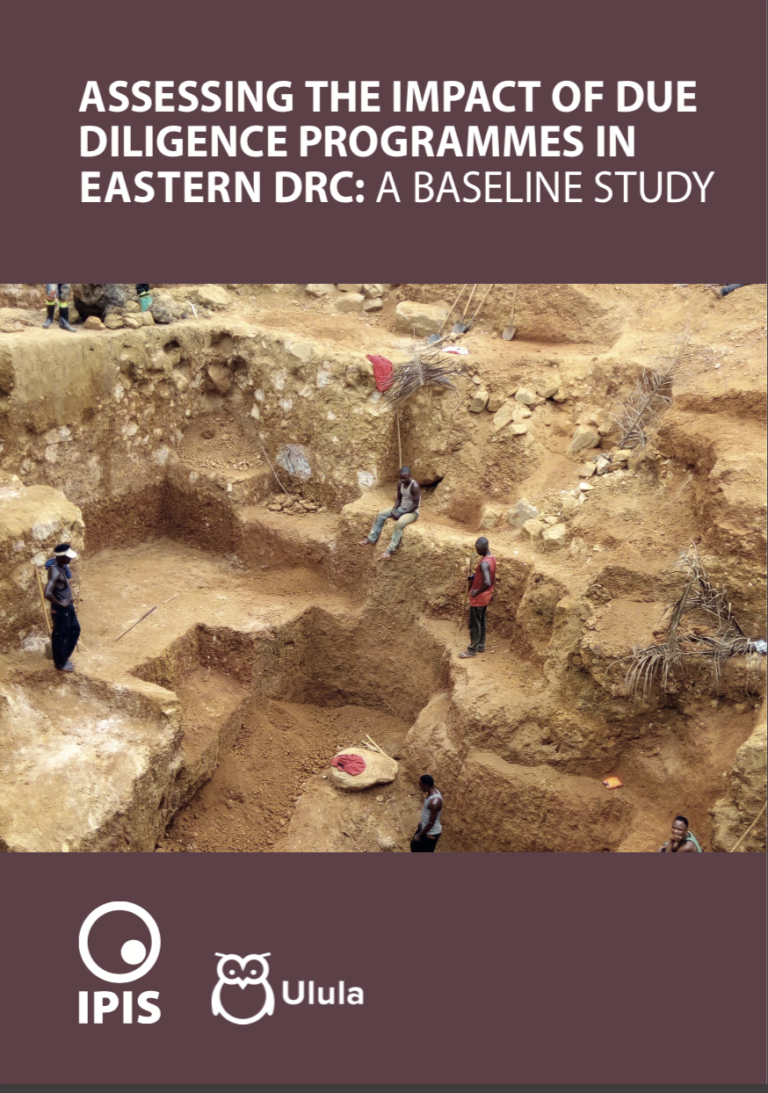Over the past decade, due diligence programmes (DDP) have been developed in the Great Lakes Region to trace the origins of minerals, certify minerals as conflict-free and to improve mining communities’ livelihoods while reducing human rights abuses in conflict affected and high-risk areas, with a special focus on the Great Lakes region. Despite significant growth and investment in minerals certification and traceability programmes, data on the impact of due diligence for miners and communities remains scarce. The International Peace Information Service (IPIS) and Ulula designed and conducted a social, environmental and human rights assessment of the impact of due diligence programmes in mining communities in the eastern provinces of the Democratic Republic of Congo (DRC). This report presents findings from an analysis based on a combination of field visits in mining sites and remote mobile phone surveys targeting people living in and around mining communities. The collection of primary data from both mining sites and individuals living in and around the sites aims to provide preliminary research findings on the impact of due diligence programmes on social, environmental and human rights indicators in eastern DRC.

